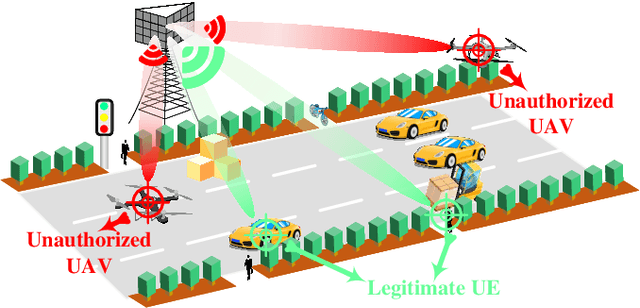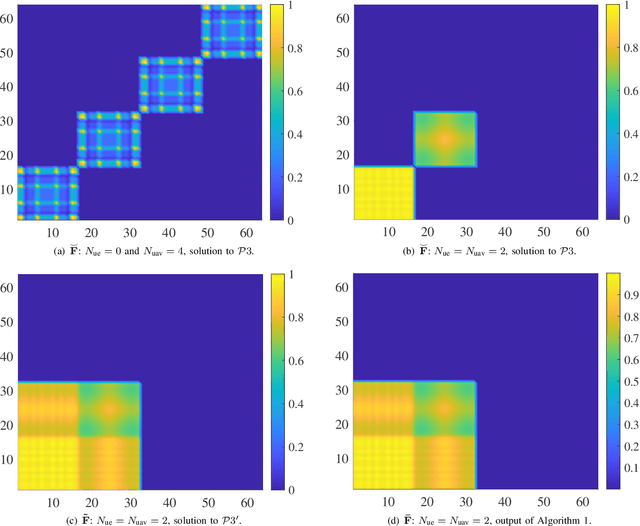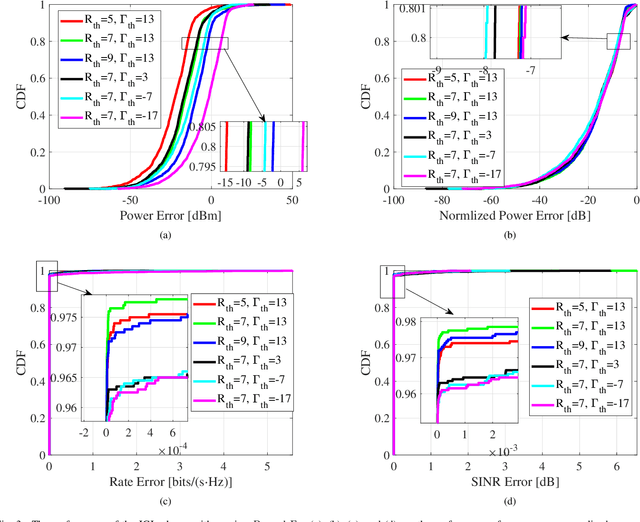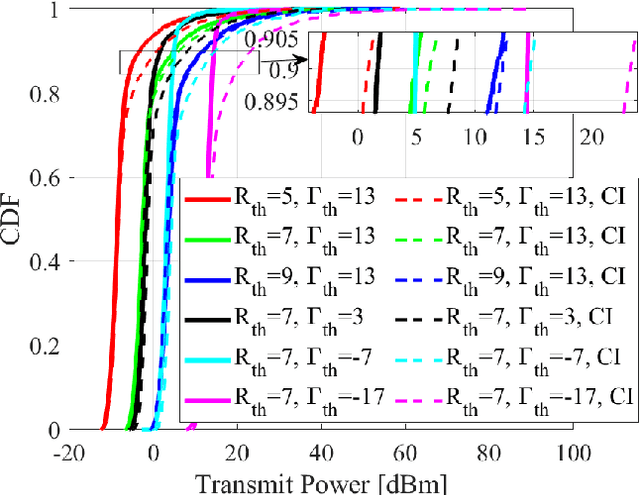Unauthorized UAV Countermeasure for Low-Altitude Economy: Joint Communications and Jamming based on MIMO Cellular Systems
Paper and Code
Oct 31, 2024



To ensure the thriving development of low-altitude economy, countering unauthorized unmanned aerial vehicles (UAVs) is an essential task. The existing widely deployed base stations hold great potential for joint communication and jamming. In light of this, this paper investigates the joint design of beamforming to simultaneously support communication with legitimate users and countermeasure against unauthorized UAVs based on dual-functional multiple-input multiple-output (MIMO) cellular systems. We first formulate a joint communication and jamming (JCJ) problem, relaxing it through semi-definite relaxation (SDR) to obtain a tractable semi-definite programming (SDP) problem, with SDR providing an essential step toward simplifying the complex JCJ design. Although the solution to the relaxed SDP problem cannot directly solve the original problem, it offers valuable insights for further refinement. Therefore, we design a novel constraint specifically tailored to the structure of the SDP problem, ensuring that the solution adheres to the rank-1 constraint of the original problem. Finally, we validate effectiveness of the proposed JCJ scheme through extensive simulations. Simulation codes are provided to reproduce the results in this paper: https://github.com/LiZhuoRan0. The results confirm that the proposed JCJ scheme can operate effectively when the total number of legitimate users and unauthorized UAVs exceeds the number of antennas.
 Add to Chrome
Add to Chrome Add to Firefox
Add to Firefox Add to Edge
Add to Edge